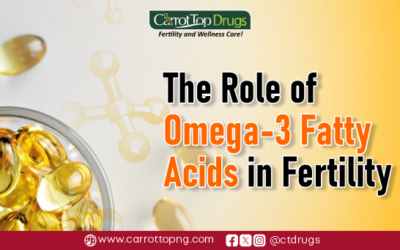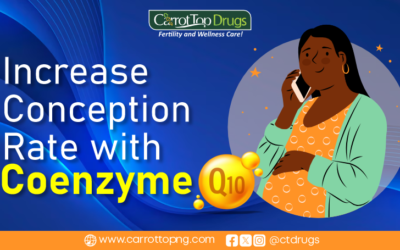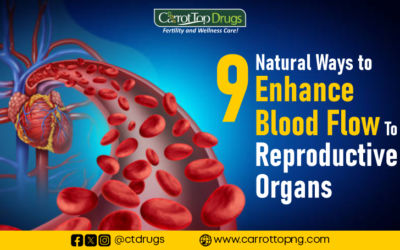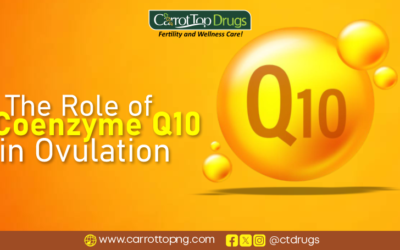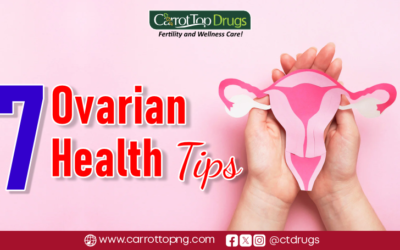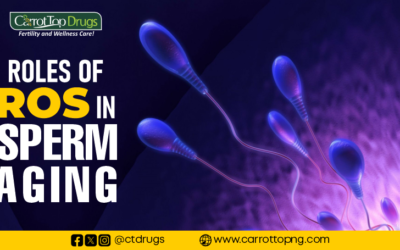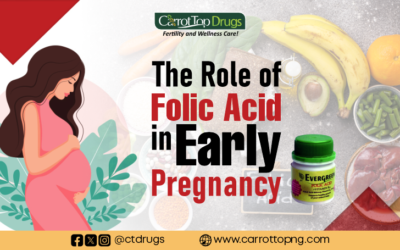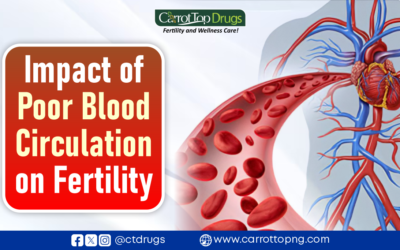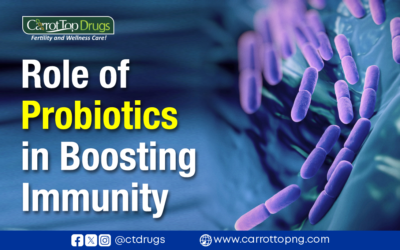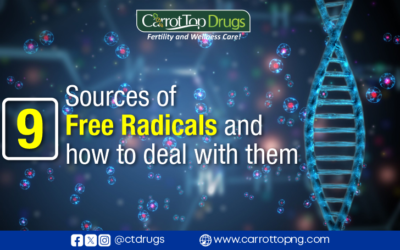What is an ovarian cyst?
An ovarian cyst is a sac that contains fluid that can be found in either one of the ovaries or both of them.
In a woman, the ovaries play a very vital role of;
- Producing hormones like progesterone and estrogen
- Producing the female sex cell (the egg)
Fertility is not possible without these two functions of the ovaries in women.
What are the types of Ovarian Cysts?
There are several types of Ovarian cysts. Usually, you could have the cysts and not even know because they are very small and benign. In addition to not knowing, you could have no symptoms whatsoever. This type of ovarian cyst does not really affect a woman’s fertility.
Let’s examine some of the types of ovarian cysts then…
Functional Cysts
When you hear of ovarian cysts, the most common type is a functional cyst. It is not related to any disease whatsoever. They usually occur because of ovulation. These cysts usually shrink on their own without treatment in less than 2 months.
Follicular Cyst
What then is a follicle?
Let’s use the example of an egg to describe its function. As a shell is to an egg so is a follicle to an ovum. In other words, the follicle is found in the ovary as well. The follicle covers the egg and it gets ruptured (opens up) during your ovulation to release the egg.
This type of cyst is formed on the rare occasion that the follicle doesn’t release its egg. Then, the follicle gets bigger because of the presence of fluid.
Corpus Luteum Cyst
In order to simply explain this, you need to know what corpus luteum is.
Earlier, a follicle was described. Corpus luteum is that follicle after it has released the egg that grows to form a clump of cells that produces hormones. When fluid collects in this clump it forms a cyst, that kind of cyst is called a corpus luteum cyst.
Cystadenomas
These types of cysts form on the surface of the ovary. The kind of fluid they are filled with can differ. Some may be watery, while others are much thicker.
Endometriomas
These are cysts associated with endometriosis. The endometrial tissues are found in these cysts. The endometrial tissue is from the lining of your womb (uterus) which comes out with your menstrual flow during menstruation.
What are the factors that predispose you to have ovarian cysts?
Pregnancy Status
Ovarian cysts are more common in pregnant women.
Age
Premenopausal women are more likely to have ovarian cysts.
History
If a woman in your family has had ovarian cysts, chances are higher that you would also have it.
Medical Conditions
You’re more likely to have ovarian cysts if you have polycystic ovary syndrome (PCOS), endometriosis, or other medical conditions.
How Common Is Ovarian Cyst In Women?
Ovarian cysts are common. However, most cysts are functional ovarian cysts which really do not affect the woman’s fertility.
How Serious Is Ovarian Cyst?
In most cases, not serious at all. In fact, they just leave before you are aware of anything. In some very rare cases of ovarian cysts, complications like infertility or cancer can arise.
What are the causes of Ovarian Cyst?
The major cause of ovarian cysts is ovulation since functional cysts occur as a result of ovulation. In simpler terms, the reason why most women have ovarian cysts is because they ovulate. The body usually resolves these cases on its own. With that said, it’s advisable to do a pelvic scan just to ensure everything is fine down there.
Other causes of Ovarian Cysts are:
Endometriosis: When endometriosis develops in the body, it may result in the formation of Ovarian cysts.
Pelvic Inflammatory Disease (PID): PID if left untreated could spread all the way to the ovaries and result in the formation of cysts.
Abnormality in the cell production process: This is the cause of dermoid cysts and cystadenomas formation.
Symptoms of Ovarian Cysts
You may not have a symptom of an ovarian cyst if you have small, simple or benign ovarian cysts — functional cysts. But, in the case that you have endometriomas, then you may experience the following…
- Pain especially in your back
- Pain during or after sex
- Painful periods
- Bloating
In the case that you have polycystic ovary syndrome, you could experience
- Irregularities in periods
- Difficulty losing weight
- Increased body hair growth
- Oily skin or acne
- Difficulty getting pregnant
So predominantly, pain is associated with large cysts and when you are experiencing such pain, it is necessary that you see your physician.
How Does It Feel To Have A Cyst On Your Ovary?
Experiences like this actually depend on the individual and the type of ovarian cyst that such an individual has.
Here are some of the feelings some women have
- Absence of pain
- A sharp pain
- A dull ache
- A recurring discomfort
What Are The Complications Of Ovarian Cyst?
1. Cancer: This happens predominantly in postmenopausal women (women who have reached menopause).
2. Ruptured ovarian cyst: The larger the cyst, the larger the possibility of bursting. This could be very painful.
3. Ovarian Torsion: Large cysts are capable of affecting the shape of the ovary. This could cause a torsion which could restrict blood flow to the ovary which could result in its death.
4. Infertility
How Is Ovarian Cyst Diagnosed?
As the popular saying goes, “Prevention is better than cure”. Early detection is far better than late detection.
Here are the ways physicians find out that you have ovarian cysts:
1. Pelvic exam
This is an examination of the pelvis that your doctor would conduct in order to feel for any cyst or lump.
2. Ultrasound
This provides an image of your body’s internal organs using sound waves. With this device, the doctor can detect the presence of cysts.
3. Laparoscopy
This is a type of operation. The surgeon can detect the presence of a cyst during this procedure and then remove it.
How To Treat Ovarian Cysts?
Factors like age, cause and symptoms are necessary for treating cysts.
Medications
Birth control pills which would stop ovulation could be given. But, this wouldn’t be a viable option for women seeking to get pregnant.
Surgery
The size and the severity of the condition maybe some of the reasons why your doctor may suggest this. Surgeries are recommended when ovarian cysts grow bigger than 10cm, rupture and continue to bleed (though rare). Surgery may also be recommended if there are concerns that the cyst could be cancerous or could become cancerous.
Laparoscopy
As explained earlier, the surgeon would insert a camera and some probes with which he/she would remove the cysts (ovarian cystectomy).
How Can I Prevent Ovarian Cyst?
Ovarian cysts can be prevented by taking birth control pills. Research has shown that this is capable of reducing the chances of it developing. However, as discussed above, there may be no need to prevent ovarian cysts since they may be harmless. It is best to just watch out for the symptoms that indicate ovarian cysts and see your doctor. This is the best course of action if you’re trying to get pregnant.
Can Ovarian Cyst Prevent Getting Pregnant?
Yes, if it is associated with endometriosis or polycystic ovary syndrome. These conditions reduce the chances of getting pregnant.
Once you have these conditions, we recommend that you see your doctor.
Can I Live With Ovarian Cyst?
Yes, you can, especially if they are functional cysts. You could live with them without even knowing that you had them.
When you discover that you have ovarian cysts, it is best to follow whatsoever treatment plan your doctor provides.
At What Point Should I Call My Doctor?
You should call your doctor if any of the following occurs:
- Irregularities in your periods
- Painful period
- Abdominal pain
- Pain while urinating or emptying your bowels
- Pain during sex
- Bloating
- Difficulty losing weight
Ovarian cysts are not always dangerous especially if you feel no symptoms. But, in the case that you experience any of the symptoms stated above, please reach out to your doctor.



